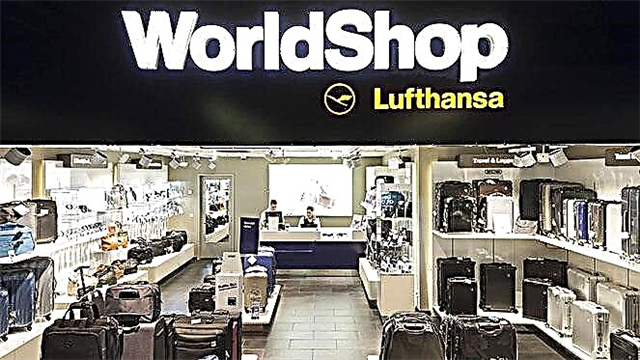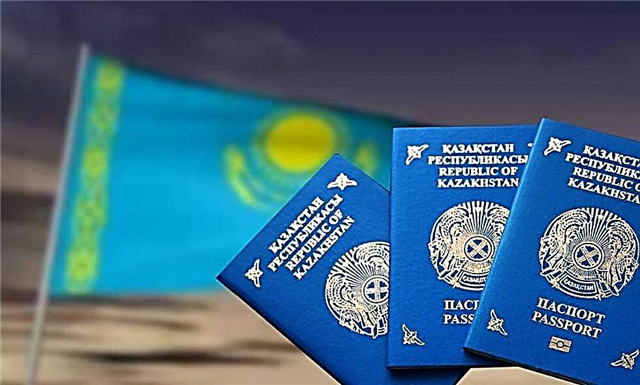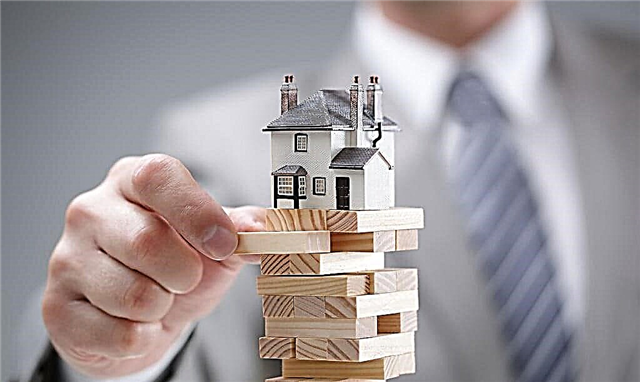The Republic of Latvia was once called the elder Baltic sister, today it is part of the European Union and a signer of the Schengen agreement. And although in comparison with the rest of Europe, this state cannot be called rich, it nevertheless managed to gain fame as a progressive and staunch member of European society. While other countries are fighting crime and poverty, Latvians are concerned about the issue of ecology and environmental pollution. What attracts Russian migrants to life in Latvia?

The level of the Latvian economy
According to the economists of SEB Bank, in 2021 the country's economic indicators were at a very high level. During this time, GDP increased by 4.7%, mainly due to the profits of state monopolists and salaries in the public sector of the economy.
In general, experts predict that interest in real estate will only increase in the coming years. And this suggests that new specialists (including foreigners) will be attracted to the construction and the level of wages in this industry will continue to grow.
Quite good results last year showed:
- telecommunication and information technologies;
- transport, storage and transport logistics;
- tourism, entertainment business;
- livestock and agriculture.
The Latvian economy at the end of 2021 had the following indicators:
- inflation rate - 3%;
- unemployment - 6.9%;
- the average increase in wages is 8%.
According to experts, these indicators may change in 2021, but not significantly. Among other Baltic countries, Latvia today ranks second in terms of economic growth, losing the lead to Estonia and overtaking Lithuania.
What level of life do you need to be prepared for?
Thanks to the accession to the EU, the standard of living in Latvia of ordinary residents has increased, but now about 50 thousand people need state support. The total number of residents of the republic is 1,887,964 (at the end of 2021).
According to the results of a survey conducted several years ago by the Department of Statistics, only 12% of Latvians do not experience difficulties with paying for utilities and household needs. The majority of the population lives off wages, about 20% rely on pension payments, and the number of entrepreneurs is 6% of the total number of employees.
Remuneration and the issue of finding a job
 The first thing that interests those who are aiming at emigration is work in Latvia. Most vacancies are in the processing industry, construction, tourism and agriculture.
The first thing that interests those who are aiming at emigration is work in Latvia. Most vacancies are in the processing industry, construction, tourism and agriculture.
A significant outflow of young people to Western European countries (Germany, Austria, Switzerland), which is due to the possibility of finding higher wages, has a significant impact on the availability of jobs.
On average, Latvians work 40 hours a week. The minimum wage is 430 euros (32 thousand rubles), after taxes (11%) - 383 euros (28.5 thousand rubles).
The average salary varies between 780-985 euros, depending on the industry and profession. Those who live in Riga boast an income of € 1,210 per month.
The unemployment rate remains high in 2021. And although the population of Latvia cannot be clearly divided into rich and poor, still almost half of it is experiencing financial difficulties.
Foreigners, in order to take a free workplace, will have to go through several stages:
- receive an invitation from the employing company;
- issue a work permit;
- apply for a national visa.
The most chances are for those who speak Latvian, have a profession and work experience in it, or those who are ready to engage in unskilled activities.
List of in-demand professions for 2021: dentists, truckers, locksmiths, cashiers, kitchen workers, salespeople.
Social security of the population
The amount of the monthly contribution to the Social Insurance Fund is 35.09%. The share of the Latvian pay only 11%, the remaining 24.09% is paid by the employer.
The state is constantly developing programs aimed at supporting people with disabilities. This category of residents is exempt from paying taxes on the use of a vehicle, they enjoy a discount on the registration of an MTPL insurance policy, free travel in public transport and a doctor's call at home, as well as a 50 percent discount on obtaining cadastral certificates.
The minimum retirement benefit is 270 euros per month. The retirement age in Latvia is 63 years and 6 months for both men and women.
Work experience for retirement reaches 30 years. It is noteworthy that the military's pension here is the same as that of other citizens.
Of the total number of people living in Latvia, about 59 thousand are unemployed (data for 2021). Only those who are citizens of the republic can receive assistance.
The amount of the benefit depends on the number of contributions to the Social Insurance Fund: at least 12 months out of the last 16. With a work experience of 9 years and an income of 500 euros, an unemployed person can receive about 125-250 euros during the first three months. Further, the amount of aid will decrease.
Health care system
 Ambulance services and first aid are not paid for in Latvia. They are covered by insurance, which is owned by every resident of the country. The amount of insurance payments reaches 65 euros per year.
Ambulance services and first aid are not paid for in Latvia. They are covered by insurance, which is owned by every resident of the country. The amount of insurance payments reaches 65 euros per year.
Foreigners can use these services without payment only if they have insurance. If there is no policy, calling an ambulance will cost approximately 94 euros. Payment is allowed within 30 days.
According to the reviews of those who have already encountered the Latvian health care system, one can judge that, first of all, it lacks the efficiency of the clinics. The second disadvantage is that with free primary medicine, patients still have to pay mandatory fees when they go to hospitals: 2-8 euros per visit.
A paid admission in a state institution will cost 10-15 euros, in a private one - 14-50 euros. Analyzes are not included in the cost of the visit. Dental services can only be obtained on a paid basis.
The average life expectancy in Latvia is 74.7 years. Moreover, women most often live up to 79 years, and men - up to 70.
Education
Studying in Latvia is possible in Russian, Latvian and English. But the number of Russian educational institutions is decreasing every year. It is planned that by 2021 there will be no schools with official teaching languages spoken by national minorities (in particular, Russians). Today over 60% of programs in Latvian schools are presented in the state language.
The education system in Latvia includes preschool, school and higher education. Up to grade 9, children study for free. After that, they can unlearn at the lyceum for another three years and enter a university or go to a special school.
Studying at the university is paid even for citizens of the country: from 1.5 to 12 thousand euros per year, depending on the university and specialty. But there are many grants and scholarships that gifted students can look forward to.
How safe is it to live in Latvia
Despite the fact that the standard of living in the republic is not yet very high, it can be considered a relatively safe territory. According to the information center of the Ministry of Internal Affairs of the country, in 2021, 43 260 crimes were registered in Latvia, which is 990 less than in 2021.
A decrease in crime has been outlined in all types of violations of the law, from administrative to criminal. Most often, the police have to deal with domestic and child violence.
At the same time, the number of cases involving the production of drugs has increased. At the same time, one cannot say about Latvia that it is a country of drug addicts.
Laws aimed at protecting the rights of minors deserve special attention. For example, if parents smoke in the presence of a child, this will be considered an act of violence, and for spanking about twos, I can completely take him away.
The same will happen if you leave the baby, who is not yet 7 years old, alone wherever.
Latvia is famous for its transparent tax and financial policy, which affects the low level of corruption. However, the people themselves, living in the country, believe that corruption is rampant in it.
Weather and climatic conditions
 Latvia is located in the northern part of Europe and is washed by the Baltic Sea and the Gulf of Riga. The climate in this part of the Baltic States is maritime and humid. Summers are dry but short.
Latvia is located in the northern part of Europe and is washed by the Baltic Sea and the Gulf of Riga. The climate in this part of the Baltic States is maritime and humid. Summers are dry but short.
There are 4 climatic zones on the territory of the republic, the change of which is noticeable if you move to the west and northwest. In this case, you can feel the transition from a continental climate to a maritime one. The total amount of precipitation per year is 600-700 mm, and the humidity reaches 82%.
The most suitable time for tourists is May – September.
In the cold season, the weather is particularly changeable. In most of the country, the average summer temperature does not exceed +20 degrees Celsius. But in winter you can observe from - 2 to - 7.
In cold weather, clothes that are too warm in Latvia are unlikely to come in handy, but in warm weather you will definitely need a windbreaker and an umbrella.
How much does life cost in the Latvian state?
How life is in Latvia should be assessed not only by the level of income, but also by the amount of expenses for current daily needs. The indicators can be influenced by the place of residence: a city or a village, the central region of a settlement or its periphery.
How much one person needs for life can be calculated only approximately. Starting from 2021, the government of the republic does not calculate these costs. We can only assume that the living wage in Latvia today is equal to the minimum wage - 430 euros.
Housing issue
Those who dream of buying a home abroad often look in the direction of Latvia. Its main advantages are the proximity to the sea, belonging to the EU and the low cost of goods and services in comparison with the rest of Europe.
The choice of real estate is quite large: studio apartments, apartments, penthouses, cottages and country houses.
When planning a purchase, it should be borne in mind that since 2021 there has been an increase in property prices in the country. A three-room apartment in the capital today will cost 330 thousand euros, a two-room apartment - 100 thousand, a one-room apartment - 50 thousand euros. One square meter of housing in a new urban building costs 1-2 thousand euros.
With regard to rent, housing prices in Latvia in this context can be divided into two categories: apartments in resorts and outside them. Apartments near the sea will cost up to 100 euros per day, while in Riga they will take about 400 euros for a week in a 3-room apartment.
When it comes to long-term rentals, prices can start from 150 euros per month in small towns and from 200 euros in Riga.
Another expense item is utility bills. On average, about 150 euros will have to be set aside for the maintenance of housing each month.
Food basket
The cost of living in Latvia is not high. Even on the minimum wage, an ordinary resident of the country can hardly, but be able to live.
Food products are 25-35% lower here than in Western Europe, which does not affect their quality in any way. All products are manufactured in accordance with accepted standards and checked by a quality control commission.
Prices for goods are displayed depending on the region, city and even retail outlet (store, supermarket, market). For example, let's give the capital prices for the basic food set:
| Name | Cost in euros for 1 kg or liter |
|---|---|
| Bread | 1-2 |
| Chicken fillet | 5-6 |
| Sugar | 1 |
| Oranges | 1-2 |
| Potato | 1 |
| Rice | 1-2 |
| Wine (750 ml) | 6-7 |
| Local cheese | 5-6 |
| Eggs | 1,5-1,7 |
| Water | 1 |
| Salmon | 10-12 |
| Buckwheat | 1,7-1,9 |
| Drinking yoghurt | 0,6-1,2 |
| Locally produced sweets | 4,5-12 |
| Coffee | 6,5-8 |
| Riga balsam | 10 |
You can dine together in a Riga cafe for 35 euros (soup + main course). But the Lido restaurant chain offers a more budget option: soup + second + dessert + drink will cost 18-20 euros.
You can drink coffee and taste sweet pastries in a coffee shop in the historic district of the capital for 10-15 euros for two.
Transport system
 Railway communication is especially well developed in Latvia. The length of the track is 2,280 km. Electric trains and trains run between cities.
Railway communication is especially well developed in Latvia. The length of the track is 2,280 km. Electric trains and trains run between cities.
This method of transportation is the most convenient and profitable here. You can get from Riga to Jurmala for only 1.4 euros, and to Daugavpils for 7.05-7.75 euros.
Public transport in Latvia is buses. A travel pass for one month will cost 40 euros, one trip around the city in one direction - 1.15-2 euros.
Those who wish not to be tied to traffic schedules can rent a car. A day's rent will cost 20-35 euros, 1 liter of gasoline costs 1.14 euros.
Latvians choose to travel by taxi only in case of emergency. The price of such a trip is 0.7-2.13 only for the landing and 0.36-0.50 euros for each kilometer. But dispatchers in local services speak Russian, and therefore a taxi can be called without any problems by phone.
Traditions and peculiarities of mentality
How local residents live in the country, what traditions they adhere to, what holidays they celebrate and what values they follow are important questions for the emigrant.
Latvians are characterized by hard work, patience, moderation in everything, cleanliness, respect for authorities. They also combine practicality well with beauty, and comfort with moderation.
Everyone who loves and knows how to work is welcome here. But the attitude towards Russians cannot be called unambiguous.
On the one hand, cultural, business and personal ties with Russia are quite strong. On the other hand, the country is trying to distance itself from the Russian Federation on political issues.
Therefore, if you do not want to feel discrimination and cold attitude, it is better not to talk to Latvians on political topics. Show respect, attention to their traditions and customs, and they will treat you the same way.
Choosing a city
Where is the best place to live in Latvia is a question that is decided for everyone on an individual basis. It all depends on the purpose of the move, future plans for life, age and financial security.
The first thing you need to be prepared for is the relative calmness in Latvian cities. There are few cars here and not as crowded as in other European cities.
When choosing a city, consider the following:
- the level of wages in Jelgava is 700-800 euros, but the unemployment rate is kept at 11% (the national average is 7%);
- Daugavpils is considered one of the poorest cities in the country. But today it has excellent potential for development, since it receives subsidies from the state more than others;
- Jurmala - it is not so difficult to find a job and a decent salary here, which is due to the developed sanatorium-resort infrastructure and a large flow of tourists.
- Life in Riga is suitable for Russians if they intend to build a career or get an education. The capital is the business, cultural and educational center of the country. Life here is more active, eventful and promising. The average salary in Riga reaches 1100 euros. The capital is suitable for those who love calm cities with a European atmosphere.
It is better to settle in the Latvian hinterland for those who are ready for real rural life and running their own economy. The villagers live off their plots and the cultivation of domestic animals.
Outcomes
Moving to this Baltic state can be a daunting decision. But before you come to him, you need to compare the pros and cons of living in Latvia:
| Advantages | disadvantages |
|---|---|
| beautiful nature, mild climate; | low wages; |
| clean ecology; | high unemployment rate; |
| location of resorts on the territory of the state, proximity to the sea; | expensive medicine in the absence of a policy; |
| excellent food quality; | high taxes; |
| inexpensive real estate; | corruption; |
| the country belongs to the EU; | low pension; |
| the ability to travel throughout Europe without a visa; | not too high quality of education; |
| simplified procedure for obtaining visas of some other states (Canada, USA); | difficulties with getting a job; |
| calm European atmosphere; | deteriorated political relations with the Russian Federation. |
| low crime rate; | |
| the opportunity to obtain a residence permit when buying real estate in the amount of 250 thousand euros (the cadastral value of the object must be at least 80 thousand euros). |











